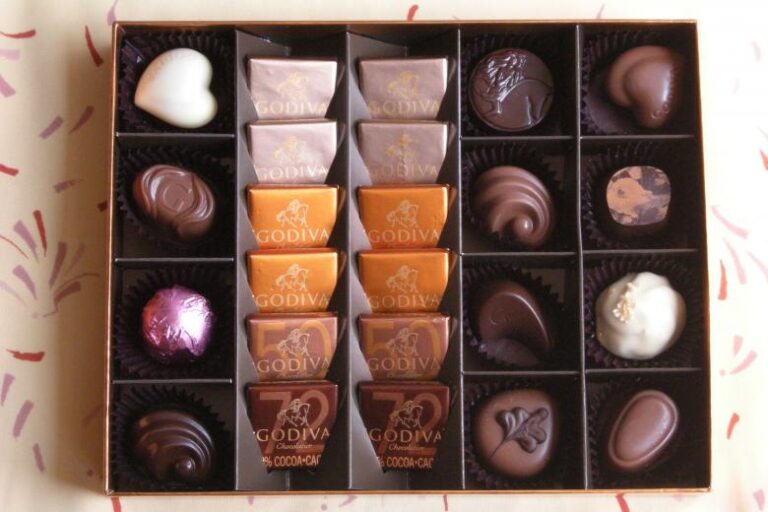Chocolate is a beloved treat enjoyed worldwide, with a rich and diverse history dating back centuries. In this article, we will explore the representation of chocolate in Islamic and Jewish cultures and traditions, uncovering the unique ways these communities have incorporated sweet delicacy into their culinary practices, religious customs, and social rituals.
Chocolate in Islamic Culture
Islamic culture deeply appreciates sweets, and chocolate is no exception. Many traditional Islamic sweets, such as Turkish Delight and halva, are made with chocolate. The use of chocolate in Islamic culture dates back to the 16th century when the Spanish introduced it to the Ottoman Empire.

Chocolate in Islamic Religious Practices
In Islamic religious practices, chocolate is enjoyed as a treat and holds symbolic significance. During Ramadan, a holy month of fasting, it is customary to break the fast with dates and water. In some Islamic cultures, breaking the fast with chocolate and other sweets. is also expected.
In addition, chocolate is also used in Islamic weddings as a symbol of celebration and abundance. It is common for the bride and groom to exchange chocolate during the wedding ceremony as a sign of their love and commitment to each other.

Chocolate in Islamic Social Customs
Chocolate is also an ordinary gift in Islamic social customs. It is often given as a hospitality gesture or thank-you assistance. During Eid al-Fitr, a festival celebrated at the end of Ramadan, it is common to exchange gifts, and chocolate is a popular choice.
Chocolate in Jewish Culture
Chocolate has also played a significant role in Jewish culture and tradition. The first chocolate factory in Israel was established in 1969 and is still in operation today.
Chocolate in Jewish Religious Practices
In Jewish religious practices, chocolate is often used to celebrate holidays and other special occasions. During the holiday of Purim, which commemorates the salvation of the Jewish people from Haman, it is customary to give gifts of food and sweets, including chocolate.
In addition, chocolate is also an everyday treat during Passover, which is a holiday that commemorates the Jewish people’s liberation from slavery in ancient Egypt. During Passover, Jewish people refrain from eating leavened bread and eat matzo instead. Chocolate-covered matzo is a popular Passover treat.
Chocolate in Jewish Social Customs
Chocolate is also a popular gift in Jewish social Customs. It is often given as a token of appreciation or thank you for assistance. During Jewish weddings, giving gifts to the bride and groom is customary, and chocolate is a popular choice.
Conclusion
In conclusion, chocolate has been essential in Islamic and Jewish cultures and traditions. It has been used in various ways, from symbolizing celebration and abundance to being given as a gesture of hospitality or appreciation. Through its integration into culinary practices, religious customs, and social rituals, chocolate has become an essential part of the cultural heritage of these communities.
FAQ’s
What is the history of chocolate in Islamic culture?
Chocolate was introduced to the Ottoman Empire by the Spanish in the 16th century. Since then, it has become a popular treat in many traditional Islamic sweets.
How is chocolate used in Islamic religious practices?
During Ramadan, breaking the fast with dates and water is customary. In some Islamic cultures, breaking the fast with chocolate and other sweets is also customary. Chocolate is also used in Islamic weddings as a symbol of celebration and abundance.
What is the significance of chocolate in Jewish religious practices?
Jewish culture often uses chocolate to celebrate holidays and other special occasions. During the holiday of Purim, it is customary to give gifts of food and sweets, including chocolate. Chocolate-covered matzo is also a popular Passover treat.
What social customs are associated with chocolate in Islamic and Jewish cultures?
Chocolate is often given as a gesture of hospitality, appreciation, or celebration in Islamic and Jewish cultures. During Eid al-Fitr and Jewish weddings, it is common to exchange gifts of chocolate.
How has chocolate become an essential part of the cultural heritage of Islamic and Jewish communities?
Chocolate has been integrated into various aspects of culinary practices, religious customs, and social rituals in Islamic and Jewish cultures. Through its symbolic significance and popularity as a festive treat and gift, chocolate has become a beloved and essential part of the cultural heritage of these communities.
